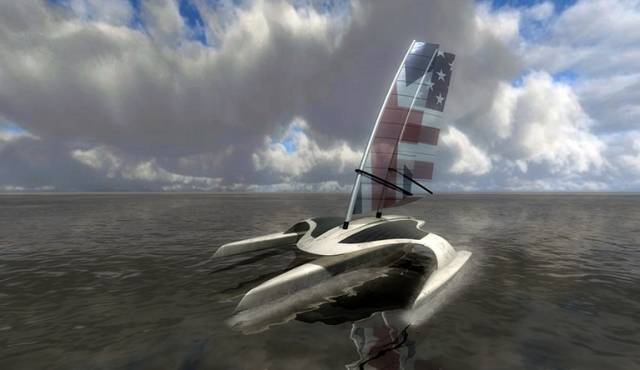Members of the public will be able to see their name etched into history when ambitious plans to build a multi-million pound robot boat to mark the 400th anniversary of the sailing of the Mayflower out of Plymouth take another step forward next month.
The team behind the Mayflower Autonomous Ship are planning a Crowdfunding launch which will offer, among many other rewards, the chance to put individual names on the side of the ship when it is built.
It will be the 21st Century version of the Mayflower and be able to sail without crew from Plymouth UK to Plymouth, USA in 2020 on the 400th anniversary of the first sailing.
Last week organisers received the support of the Ambassador of the United States of America Matthew Barzun at a special reception at the Embassy in London to celebrate the transatlantic relationship.
But in order to get the design from blueprint to boatyard, organisers need to raise £300,000 for the crucial next design and development stage which will include robust wave tank scale-model testing.
Everyone is being offered the chance to get their name written into history as ‘new pilgrims' by buying a reward that will literally make their mark on the project. For £20 you can put your name on the boat; for £50 you can put your family's name on it and for £35 you can put two names and a significant date.
Larger rewards will include invitations to VIP events, invitations to the launch, exclusive opportunities and other offers.
"So far we have the plans, the passion, the potential and now all we need is to get it to production," explains Patrick Dowsett, who spent 30 years in the Royal Navy, including time as a commander, in charge of HMS Northumberland.
"It is ground-breaking in so many ways and will put Plymouth on the global map for marine science excellence. We are offering everyone a chance to get involved in this incredible Devon project.
"This first stage will nail down the planning, the testing, the project development and the modelling to enable us to start the build of the real thing in 2018."
The launch of the Mayflower Autonomous Ship out of Plymouth UK as the flagship of the Mayflower 400 celebrations will cement the city's reputation as a global centre of marine excellence and a marine science hub.
The Mayflower Autonomous Ship (MAS) will be the first vessel of its kind to sail without captain or crew across the Atlantic and be able to conduct scientific research around the world.
With driverless cars already on the horizon and the air industry using computers to fly planes, MAS could lead the way to changing the way the shipping industry works.
When launched, the MAS could be controlled by a computer, or by a captain sitting behind a virtual bridge onshore. It would sail out of Plymouth via remote control and then switch to autonomous control once out at sea.
It will be solar powered, with cutting edge battery and renewable energy capture, travelling to inhospitable parts of the world to conduct scientific research and collect data. Onboard there will be unmanned aerial vehicles plus life rafts so that it can respond to a distress call from other mariners, and be first on the scene and render assistance.
The MAS will be built in Plymouth and the South West. The team behind the project, a collaboration between Plymouth submarine builder MSubs, Plymouth University and charitable marine research foundation Promare, is looking for suitable locations.































































